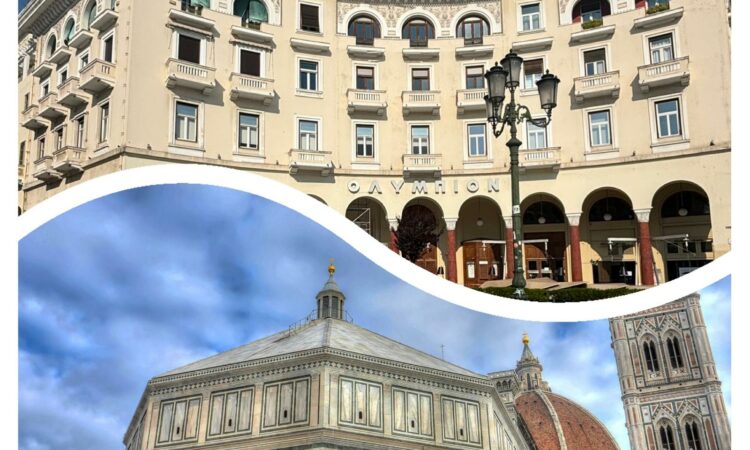Thessaloniki
The international fast food chain McDonald’s is “one step away from signing” a lease for the premises of the historic Olympion café, located in Aristotelous Square—Thessaloniki’s most iconic and photographed square in northern Greece. The proposal has been on the table for some time and, according to several sources, the agreement is now close to being finalized. However, public reaction has been swift: many locals oppose the idea of turning one of the city’s landmark buildings into a fast food restaurant. The Olympion is not just a historic site—it is an architectural and cultural symbol for the whole of Thessaloniki. In recent years, however, rental prices in the square have risen so high that only a major multinational can afford them.
Florence
A similar situation occurred in Florence in 2016, when McDonald’s submitted a request to open a restaurant in Piazza del Duomo. When Giovanni Bettarini, then the city’s economic development councillor, announced the news, thousands of people protested, particularly on social media. A petition launched on Facebook gathered nearly 10,000 signatures, openly calling on the city government to block the fast food opening in one of Florence’s most iconic locations.
Why Not
Every city has buildings that play an almost sacred role: they embody the past, the present, and even the future. Observing them reveals not just their architectural value but also the spirit of the people who live in and around them. Managing these spaces requires wisdom and responsibility. Palazzo Strozzi in Florence is a virtuous example: walk inside and you immediately feel the “sacred” atmosphere. It is a place of art, that houses art within.
Thessaloniki, too, has buildings of equal beauty. It is a city rich in history, celebrated across many eras. Founded in 315 BC by Cassander of Macedon (Κάσσανδρος), one of Alexander the Great’s successors, the city lived through the Hellenistic, Roman, Byzantine, Ottoman, modern, and contemporary periods. Its urban fabric retains traces of each, telling the stories of all these times. These historic buildings serve as anchors in a city that evolves—but should never deny its identity.
Conclusion
In 2016, the city of Florence said no to McDonald’s. It was a decision meant to show care and respect for the city’s architectural and cultural heritage. In Italy, art and beauty are considered sacred.
Now all eyes are on the municipality of Thessaloniki. Because the way a city evolves can be seen in how it treats its past.
Support Florence Daily News
Florence Daily News is an independent news site covering the stories, culture, and life of Florence and Tuscany. We don’t rely on clickbait, invasive or hidden advertising, or paywalls. Instead, we believe in quality journalism that respects our readers and serves those who care about thoughtful, local reporting.
If you value our work, consider supporting us with a donation.
Donate securely via Stripe below.
Make a one-time donation
Make a monthly donation
Make a yearly donation
Choose an amount
Or enter a custom amount
Your contribution is appreciated.
Your contribution is appreciated.
Your contribution is appreciated.
DonateDonate monthlyDonate yearlyEirini Lavrentiadou is an actress and singer, born in Thessaloniki in 1992. She lives in Florence, where she trained at the city’s Theatre Academy and the Fiesole School of Music. She has performed in classical Greek and European plays, worked with international directors and companies, and appeared in concerts ranging from opera to jazz. She contributes to Florence Daily News as a writer.
Discover more from Florence Daily News
Subscribe to get the latest posts sent to your email.

